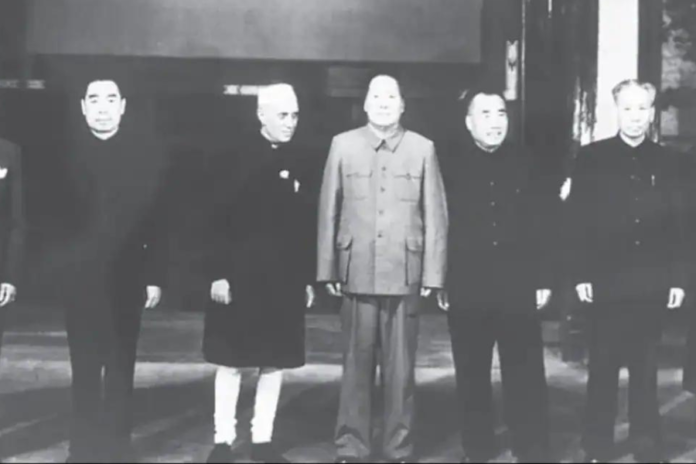In his pursuit of greater influence in the Global South amidst its rivalry with the West, China President Xi Jinping emphasized the importance of the guiding principles of ‘Panchsheel’ – the Five Principles of Peaceful Coexistence – which gained traction with the Non-Aligned Movement, to address current tensions.
Invoking the Five Principles of Peaceful Coexistence — dubbed ‘Panchsheel’ by India —Xi Jinping, 71, tried to juxtapose them with his new concept of the Global Security Initiative, which envisions a shared future for all people, during a meeting in Beijing to commemorate the concept’s 70th anniversary.
According to the Ministry of External Affairs, the ‘Panchsheel’ guidelines were first explicitly stated in the Agreement on Trade and Intercourse between the Tibet region of China and India, which was signed on April 29, 1954.
The five principles, also known as “Panchsheel,” were a part of the legacy left by former Chinese Premier Zhou Enlai and Indian Prime Minister Jawaharlal Nehru during their fruitless search for a resolution to the complex boundary dispute.
“The Five Principles of Peaceful Coexistence were a natural historical evolution, and they responded to the call of the times. The Five Principles—”mutual respect for sovereignty and territorial integrity,” “mutual non-aggression,” “mutual non-interference in each other’s internal affairs,” “equality and mutual benefit,” and “peaceful coexistence”—were previously stated in full for the first time by the Chinese leadership,” Xi Jinping said during his address.
“The joint declarations from China, India, and Myanmar both incorporated the Five Principles and asked for them to become fundamental standards for relations between states,” he added.
The Five Principles of Peaceful Coexistence, or “Panchsheel,” originated in Asia (India), but they swiftly spread around the globe. Xi Jinping mentioned in his speech that over 20 Asian and African nations joined the Bandung Conference in 1955. ‘Panchsheel’ or the Five Principles were the guiding principles of the Non-Aligned Movement, which was spearheaded by Jawaharlal Nehru and emerged in the 1960s.
Xi claimed that China is fully aligned with the goals and tenets of the UN Charter, the contemporary trend in international relations, and the fundamental interests of all countries. He then attempted to contrast them with his new ideas for the Global Security Initiative (GSI), which promotes international cooperation in security matters and the “Vision of Building a Community with a Shared Future for Mankind.”
Xi, who took office last year and began an unprecedented third five-year term as president, has been pushing a number of projects to increase China’s influence abroad, including his billion-dollar pet project, the Belt and Road Initiative (BRI).
China has made significant investments under the Belt and Road Initiative (BRI) in infrastructure projects in smaller nations, which in turn has drawn accusations of debt diplomacy as some nations have found it difficult to repay Chinese loans.
Additionally, China has been battling with India and other developing nations to increase its influence in the Asia-Pacific region—also known as the Global South—as it faces growing geopolitical rivalry from the US and EU.
Also Read: China using resettlement villages to displace India at LAC
According to Xi, China will open a Global South Research Center to enhance South-South collaboration globally.
In the next five years, China will offer 1,00,000 training opportunities to Global South countries, 1,000 “Five Principles of Peaceful Coexistence Scholarship of Excellence,” and the establishment of a program called “Global South Youth Leaders,” he stated.



